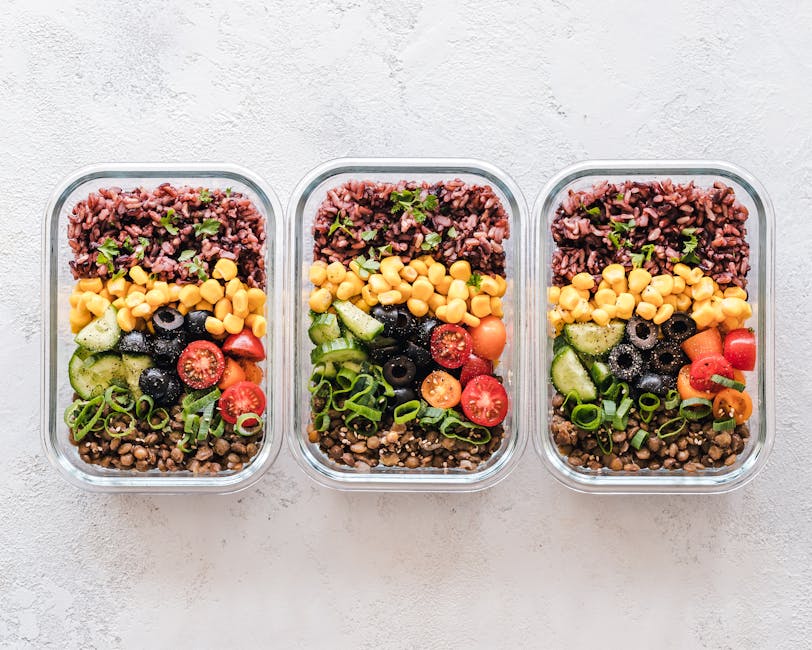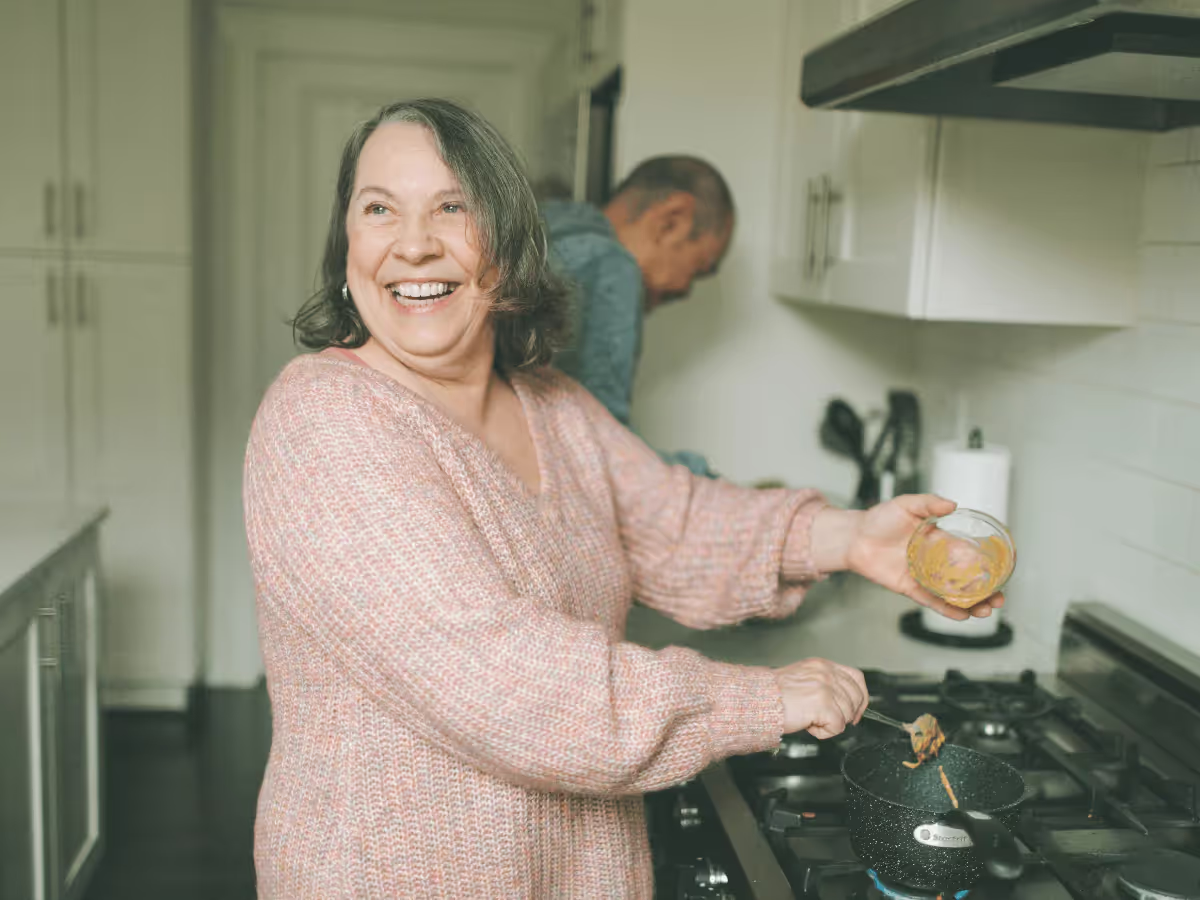The Key to Nourishing Senior Health
Meal planning is the process of deciding what your elderly loved one will eat over the coming days or week, then preparing the ingredients and meals in advance. For families caring for seniors, this simple practice becomes a powerful tool for ensuring consistent nutrition while reducing daily stress.
What is meal planning for seniors?
- Planning weekly menus that meet specific dietary needs
- Preparing grocery lists based on health conditions
- Batch cooking and portioning meals in advance
- Coordinating meals with medications and treatment schedules
When you're caring for an aging parent, the question "What's for dinner?" can feel overwhelming. Seniors need consistent, nutrient-dense meals to maintain their health, manage chronic conditions, and preserve their independence. Yet research shows that meal planning can save families both time and money while ensuring better nutrition outcomes.
The average family of four spends $1,500 a year on food that goes uneaten. For seniors on fixed incomes, this waste becomes even more problematic. Meal planning eliminates the guesswork that leads to poor food choices, forgotten meals, and expensive last-minute solutions.
More importantly, proper nutrition becomes critical as we age. Seniors face unique challenges - decreased appetite, medication interactions, swallowing difficulties, and chronic health conditions that require specific dietary approaches. Without a plan, these needs often go unmet.
A structured approach to meal planning addresses these challenges head-on. It ensures your loved one receives balanced nutrition, helps manage medical conditions through diet, and gives you peace of mind knowing their nutritional needs are covered.
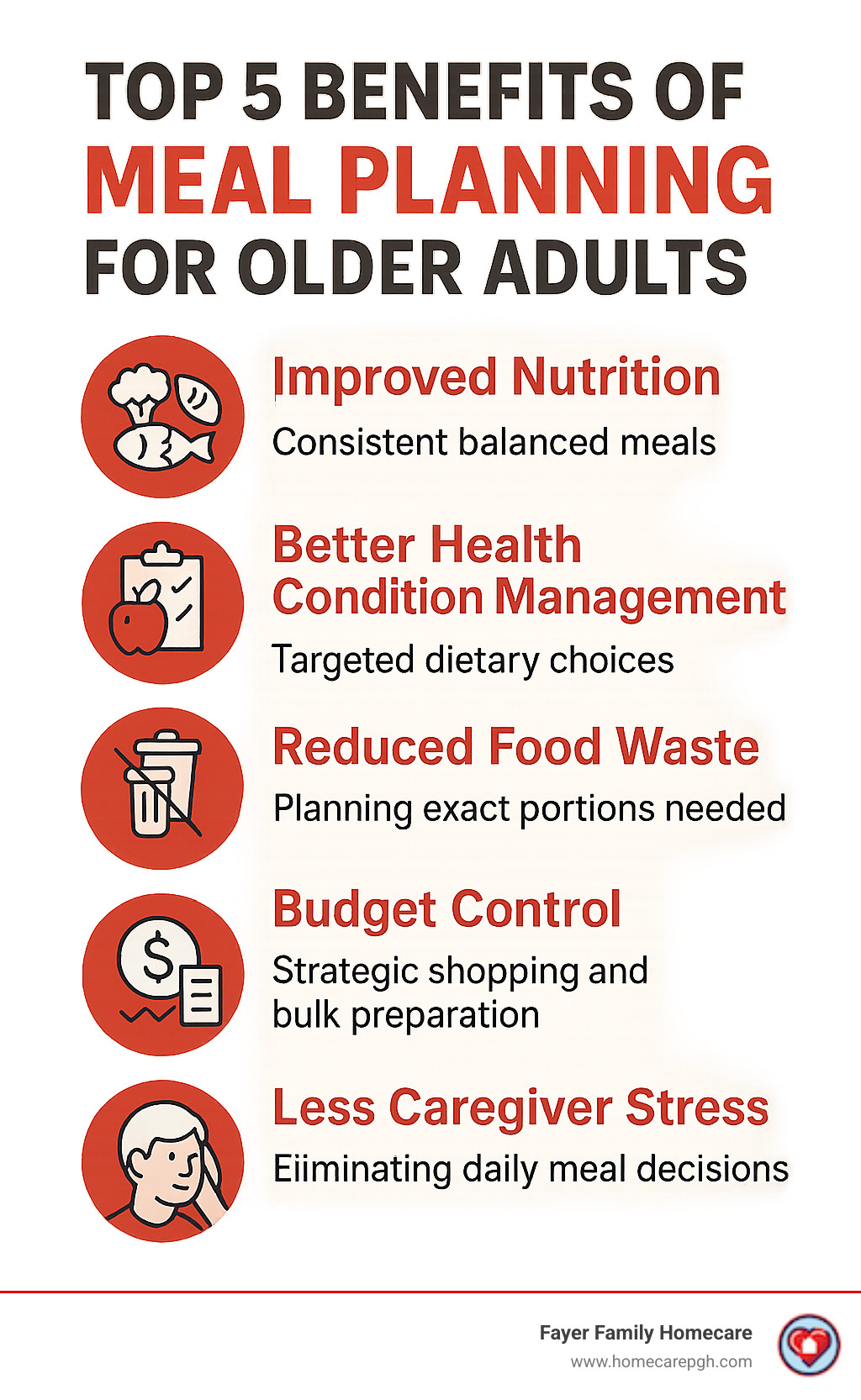
Why Meal Planning is a Cornerstone of Quality Senior Care
When you're caring for an aging loved one, meal planning becomes much more than just deciding what's for dinner. It transforms into a vital tool that can make the difference between your senior thriving or simply surviving.
As our loved ones age, their nutritional needs become increasingly complex. Their bodies may not absorb nutrients as efficiently as they once did. Medications can affect appetite or interact with certain foods. Chronic conditions like diabetes or heart disease require careful dietary management. Without a structured approach to nutrition, seniors can quickly slide into malnutrition - a problem affecting one in four older adults.
This is where meal planning becomes your secret weapon as a caregiver. Instead of scrambling each day to figure out what your loved one should eat, you can create a thoughtful roadmap that addresses their specific health needs while reducing your own stress.
Think about it this way: when you plan meals for your senior, you're not just preventing the 3 PM panic of "What am I going to make for dinner?" You're taking control of their health outcomes, managing your budget more effectively, and giving yourself the gift of time and peace of mind.
The ripple effects of good meal planning extend far beyond the dinner table. You'll find yourself making fewer emergency grocery runs, wasting less food, and feeling more confident that you're providing the best possible care. For a deeper understanding of how nutrition impacts senior health, our article on The Role of Nutrition in Senior Home Care: Promoting Healthy Aging offers valuable insights.
The Health Benefits for Seniors
When you implement consistent meal planning for your senior loved one, you're giving them a tremendous gift - the foundation for better health and vitality in their golden years.
Consistent nutrient intake becomes your first victory. Seniors often experience fluctuating appetites or forget to eat regularly. By planning their meals, you ensure they receive essential vitamins, minerals, and nutrients every single day. No more worrying about whether they've had enough protein this week or if they're getting the calcium they need for bone health.
Weight management often becomes easier when meals are planned ahead. Whether your loved one needs to gain weight after an illness or maintain a healthy weight to manage other conditions, having a structured meal plan helps you control portions while ensuring every bite counts nutritionally. You can focus on nutrient-dense foods that provide maximum benefit.
One of the most encouraging benefits is supporting cognitive function through strategic food choices. When you plan meals that include brain-healthy foods like leafy greens, fatty fish, and colorful berries, you're actively supporting your loved one's mental sharpness. These aren't just nice-to-have additions - they're investments in their cognitive health.
Energy levels stabilize dramatically when seniors eat regular, balanced meals. Instead of experiencing the ups and downs that come with erratic eating patterns, your loved one will likely feel more consistent energy throughout the day. This can lead to better mood, increased activity, and greater engagement with family and activities they enjoy.
Don't overlook hydration tracking as part of your meal planning process. Many seniors don't drink enough fluids, but when you plan meals that include water-rich foods like soups, fruits, and vegetables, you're helping them stay hydrated without making it feel like a chore.
Perhaps most importantly, proper nutrition through meal planning helps build a stronger immune system. When your senior receives consistent, varied nutrition, their body is better equipped to fight off infections and recover from illnesses more quickly.
The Practical Benefits for Caregivers
As a caregiver, meal planning offers you relief in ways you might not have imagined. The daily mental load of caregiving is enormous, and anything that simplifies your routine is worth its weight in gold.
Less daily stress might be the most immediate benefit you'll notice. When you're not constantly asking yourself "What should I make for lunch?" or "Do we have ingredients for dinner?" your stress levels drop significantly. That mental energy can be redirected toward spending quality time with your loved one or taking care of your own needs.
The financial savings add up quickly when you plan meals ahead. You'll buy only what you need, use up ingredients before they spoil, and rely less on expensive convenience foods or takeout. For families managing the costs of senior care, these savings can be substantial over time.
More organized shopping trips become a reality when you shop with a detailed list based on your meal plan. No more wandering grocery store aisles wondering what you need, or making multiple trips because you forgot something essential. You get in, get what you need, and get out - saving both time and energy.
The peace of mind that comes from knowing your loved one's nutritional needs are covered cannot be overstated. You can rest easier knowing that their meals align with their doctor's recommendations and that they're getting proper nutrition to support their health conditions.
Finally, less time in the kitchen becomes possible when you batch cook and prep ingredients ahead of time. Instead of cooking from scratch three times a day, you might spend a few hours on Sunday preparing components that make weekday meals quick and easy to assemble.

A 4-Step Guide to Effective Meal Planning for a Senior
When you're caring for an aging loved one, creating a meal planning system might feel overwhelming at first. But here's the good news: it doesn't have to be complicated. We've developed a straightforward, four-step approach that makes planning nutritious meals for seniors both manageable and rewarding.
This framework recognizes that every senior has unique needs, preferences, and health considerations. Whether you're caring for a parent with diabetes, helping a grandparent who struggles with swallowing, or simply wanting to ensure your loved one eats well, these steps will guide you toward creating meals that nourish both body and spirit.
Step 1: Assess Dietary Needs, Health, and Preferences
Think of this step as building the foundation for your senior's meal planning success. Just like you wouldn't build a house without understanding the ground it sits on, you can't create an effective meal plan without understanding your loved one's specific needs.
Start by consulting with their healthcare team. This includes their primary doctor, any specialists they see regularly, and ideally a registered dietitian if possible. These professionals understand how your senior's medications interact with food, what dietary restrictions are crucial for managing their conditions, and how their changing body processes nutrients differently than it did years ago.
Pay special attention to sodium and sugar requirements. Many seniors need to limit sodium levels to protect their heart health and manage blood pressure. Similarly, controlling sugar intake becomes critical, especially for those managing diabetes or pre-diabetes. Don't worry – this doesn't mean bland food! We'll show you how to use herbs and spices to create flavorful meals that support their health.
Consider any texture modifications your loved one might need. If they're experiencing chewing or swallowing difficulties, you may need to plan for softer foods, finely chopped ingredients, or even pureed meals. Watch how they eat during meals – are they avoiding certain textures? Do they seem to struggle with particular foods? These observations will guide your planning.
Document food allergies and intolerances clearly, and keep this information handy when shopping and cooking. Even longtime food sensitivities can become more pronounced with age.
Here's something many caregivers forget: favorite foods matter just as much as nutritional requirements. Ask your loved one about meals that bring them joy, comfort foods from their past, or flavors they've been craving. Equally important is knowing what they dislike – there's no point planning meals around foods they'll refuse to eat.
Portion sizes for seniors often differ significantly from standard serving suggestions. Some may need smaller, more frequent meals, while others might require calorie-dense options to prevent unwanted weight loss. Their activity level, medications, and overall health status all influence these needs.
Step 2: Find Recipes and Structure the Weekly Menu
Now comes the creative part – turning your senior's needs and preferences into an actual weekly menu. This is where meal planning transforms from an abstract concept into delicious, nourishing reality.
Start with a simple framework. We recommend using the MyPlate guidelines for older adults as your foundation. These guidelines emphasize variety across food groups while being mindful of the nutrients seniors need most. The beauty of MyPlate is that it's visual and flexible – perfect for creating balanced meals without getting bogged down in complex calculations.
Theme nights can be your secret weapon for adding structure without stress. "Soup Sunday" gives you a chance to make a big batch that provides several meals. "Fish Friday" ensures your loved one gets heart-healthy omega-3s regularly. "Comfort Food Wednesday" might feature their favorite childhood dish, adapted for their current dietary needs.
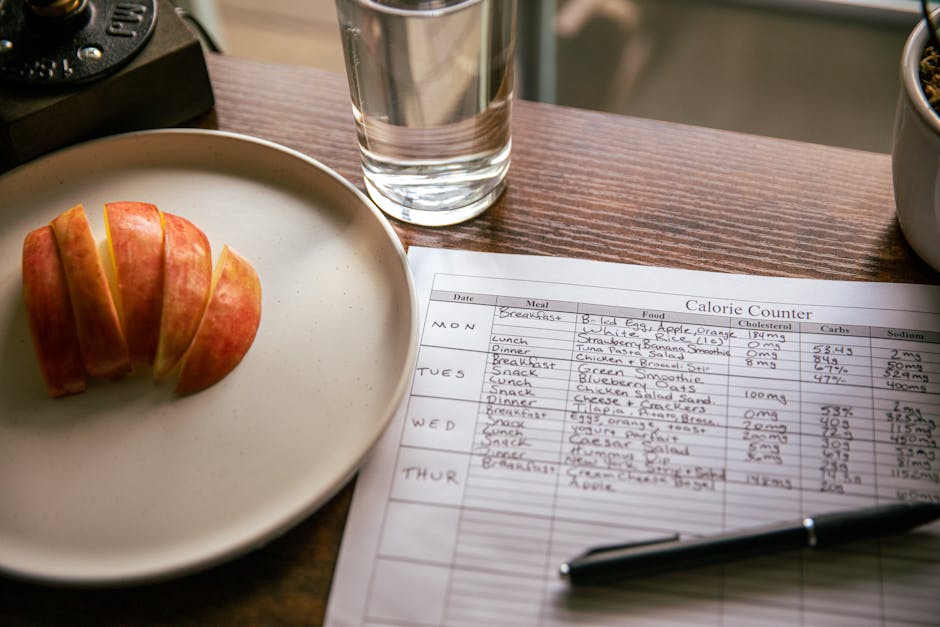
Don't forget to plan for snacks and hydration. Many seniors do better with smaller, more frequent meals rather than three large ones. Healthy snacks like yogurt with berries, a small handful of nuts, or cheese and crackers can help maintain steady energy levels throughout the day. Planning for adequate fluid intake is equally important – consider incorporating water-rich foods like fruits and vegetables, and schedule regular drink breaks.
Build leftovers into your plan strategically. When you roast a chicken for Sunday dinner, plan to use the leftover meat in Monday's chicken salad sandwiches or Tuesday's soup. This approach saves time and reduces waste while ensuring your loved one enjoys variety.
Keep breakfast and lunch simple with some repetition. Many seniors actually prefer consistency in these meals. Having two or three go-to breakfast options and rotating lunch choices reduces decision fatigue while allowing you to focus your creative energy on dinners.
For recipe inspiration, trusted sources like the National Institute on Aging and AARP offer senior-specific recipes that consider both nutritional needs and practical cooking considerations. These resources understand the unique challenges of cooking for older adults and provide tested solutions.
Step 3: Build a Grocery List and Shop Smart
Your meal planning success depends heavily on having the right ingredients when you need them. Smart shopping starts before you ever leave the house.
Take inventory first. Check your senior's pantry, refrigerator, and freezer to see what's already available. This prevents duplicate purchases and helps you use up items before they expire. It's also a good time to check expiration dates and clear out anything that's no longer safe to eat.
Organize your grocery list by store sections – produce, dairy, meat, frozen foods, and pantry items. This makes your shopping trip more efficient and reduces the chances of forgetting something important. When you're juggling caregiving responsibilities, every minute saved at the store is valuable.
Read Nutrition Facts labels carefully. This is especially crucial when shopping for seniors with specific dietary needs. Look for lower sodium options, check sugar content, and compare nutritional values between similar products. Your loved one's health conditions may make these details more important than ever.
Accept smart convenience choices. There's no shame in using shortcuts that help you provide better nutrition with less stress. Pre-cut vegetables save time and may actually increase vegetable consumption if prep work was becoming a barrier. Rotisserie chicken provides lean protein that can be used in multiple meals throughout the week. Frozen fruits and vegetables are picked at peak ripeness and can be more nutritious than fresh produce that's traveled long distances or sat on shelves.
Consider your senior's changing needs when selecting products. Softer breads, pre-cooked grains, and easy-to-open packaging can make meals more accessible for those with arthritis or limited dexterity.
Step 4: Prep Ahead to Simplify Your Week
This final step is where your meal planning efforts truly pay off. By spending a few hours preparing ingredients and components ahead of time, you transform busy weekdays from stressful scrambles into calm, organized meal times.
Choose a prep day that works for your schedule. Many caregivers find Sunday afternoons ideal, but pick whatever day allows you to work without rushing. This prep time is an investment that pays dividends throughout the week.
Batch cook staple ingredients that appear in multiple meals. Prepare larger quantities of grains like oats, rice, or quinoa that can be quickly reheated and added to different dishes. Cook a big pot of soup or stew that can provide several meals – seniors often love the comfort and warmth these dishes provide.
Wash and chop vegetables as soon as you return from shopping. Store them in clear containers so you can easily see what's ready to use. This simple step removes a common barrier to including vegetables in meals and makes healthy choices the easy choices.
Portion snacks into individual containers or bags. This helps with portion control and makes it simple for your loved one to grab a healthy snack independently. Pre-portioned nuts, cut vegetables with hummus, or fruit cups can encourage better eating habits.
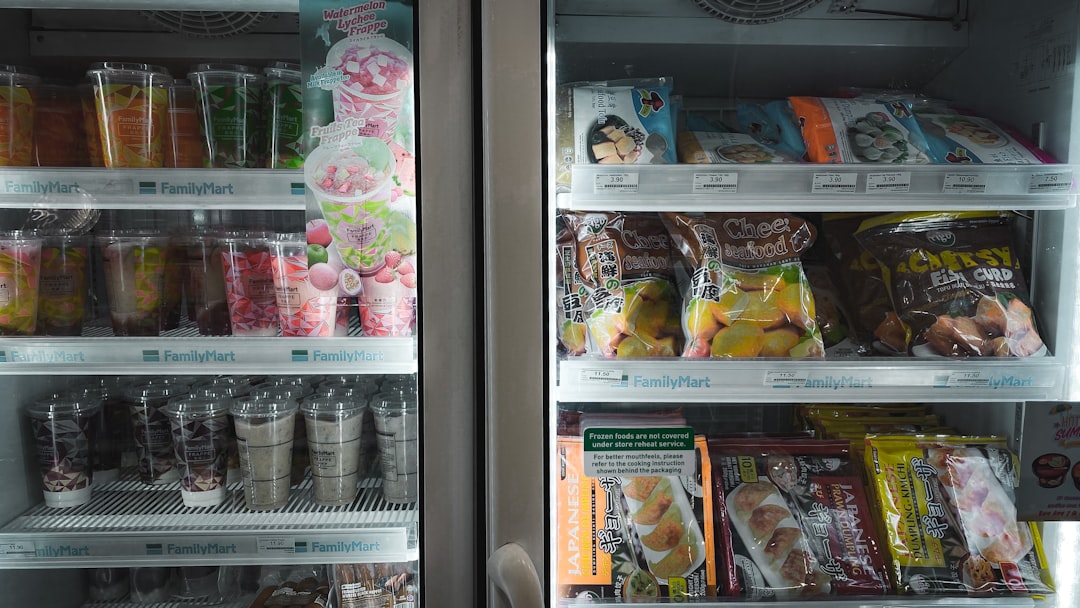
Label everything with contents and dates. This prevents the mystery container syndrome and helps ensure food safety. Use airtight containers, preferably glass ones that can go from freezer to microwave safely.
Cook proteins in advance when appropriate for your loved one's dietary needs. Grilled chicken, baked fish, or cooked beans can be incorporated into salads, sandwiches, or main dishes throughout the week.
The time you invest in this prep work pays off every single day. Instead of starting from scratch each mealtime, you're simply assembling components you've already prepared. This means less time in the kitchen and more quality time with your loved one – which is what caregiving is really about.
Adapting Meal Plans for Common Senior Health Conditions
When you're caring for a senior loved one with chronic health conditions, meal planning transforms from a helpful convenience into an essential caregiving tool. The meals you prepare can actually work alongside their medications and treatments to help manage symptoms and improve their daily comfort.
Think of strategic meal planning as another form of medicine – one that happens three times a day. By planning meals that align with your loved one's specific health needs, you're not just feeding them; you're actively supporting their treatment plan and helping stabilize their condition.
Of course, before making any significant changes to your senior's diet, especially when managing health conditions, it's crucial to work with their healthcare team. Their doctor or a registered dietitian can provide personalized guidance that complements their medical treatments and ensures the diet supports their overall care plan.
Strategic Meal Planning for Diabetes
If your senior loved one has diabetes, you've probably felt overwhelmed by all the dietary "rules" and restrictions. The good news? Meal planning can actually simplify diabetes management and take the guesswork out of what's safe to serve.
The key to diabetes-friendly meals isn't eliminating foods your loved one enjoys – it's about creating consistency and balance. Consistent carbohydrate intake throughout the day helps prevent those scary blood sugar spikes and crashes that can leave seniors feeling weak or confused. Instead of avoiding carbs entirely, focus on spreading them evenly across breakfast, lunch, dinner, and snacks.
Spacing meals throughout the day becomes especially important for seniors with diabetes. Their bodies handle blood sugar differently than younger adults, so regular meal times with small, healthy snacks in between can help maintain stable levels and prevent extreme hunger that leads to overeating.
When planning meals, focus on high-fiber foods like non-starchy vegetables, whole grains, and legumes. Fiber acts like a natural blood sugar regulator, slowing down sugar absorption and preventing rapid spikes. Your loved one will feel more satisfied, and you'll have peace of mind knowing their blood sugar is more stable.
Limiting sugary drinks and desserts doesn't mean eliminating sweetness entirely. Fresh fruits can satisfy sweet cravings while providing valuable nutrients, and water or unsweetened beverages become the go-to drinks. The average person consumes far more sugar than needed, so cutting sweetened beverages is one of the simplest changes you can make.
Don't forget about healthy fats from sources like avocados, nuts, and olive oil. These foods help your loved one feel satisfied longer and support their overall health. For a comprehensive understanding of diabetes meal planning, this helpful video explains the basics of meal planning for diabetes management.
Heart-Healthy and Low-Sodium Meal Planning
Caring for a senior with heart disease means every meal becomes an opportunity to support their cardiovascular health. A heart-healthy meal plan doesn't have to be bland or boring – it's about making smart choices that reduce the burden on their heart while keeping meals enjoyable.
Reducing processed foods is your first line of defense. These convenience items are often loaded with sodium, unhealthy fats, and added sugars that can worsen heart conditions. By planning and preparing meals at home, you control exactly what goes into your loved one's food, which gives you tremendous power to support their health.
The biggest challenge many caregivers face is making low-sodium food taste good. The secret lies in using herbs and spices instead of salt. Experiment with garlic powder, basil, oregano, cumin, or lemon juice to add flavor without adding sodium. Your loved one might find new favorite flavors they never tried before.
Choosing lean proteins becomes second nature once you get into the rhythm of heart-healthy meal planning. Think skinless poultry, fish (especially those rich in heart-healthy omega-3s), legumes, and lean cuts of meat. These proteins support muscle health without adding unnecessary saturated fat.
Incorporating healthy fats might seem counterintuitive when caring for someone with heart disease, but monounsaturated and polyunsaturated fats from olive oil, avocados, nuts, and seeds actually support heart health. It's the saturated and trans fats – often found in red meats, full-fat dairy, and processed snacks – that you want to limit in your meal plans.
By thoughtfully crafting meals around these principles, you're doing more than just feeding your loved one. You're actively participating in their healthcare, helping them feel better day by day, and showing your love through every carefully planned meal.
Frequently Asked Questions about Meal Planning for Seniors
As family caregivers, we know that implementing meal planning for your elderly loved one can feel overwhelming at first. Don't worry - you're not alone in having questions! We've helped many families steer these challenges, and we're here to address the most common concerns that arise when caring for seniors.
How can I handle a senior's low appetite or picky eating?
This is probably the most frustrating challenge we hear about from family caregivers. Your mom who used to love your cooking suddenly picks at her food, or your dad refuses anything that isn't exactly how he remembers it from decades ago. Take a deep breath - this is incredibly common as we age.
Appetite changes happen for many reasons in seniors. Medications can alter taste, dental issues make chewing painful, and sometimes depression or loneliness affects their desire to eat. The good news is that thoughtful meal planning can help address these challenges.
Try offering smaller, more frequent meals throughout the day instead of three large ones. A senior who feels overwhelmed by a full plate might happily eat five or six mini-meals. Think of it like tapas - small portions of foods they enjoy, spread across the day.
Involving your loved one in menu planning works wonders too. When we present a few healthy options from our meal plan and let them choose, they feel more in control. Even better, if they're able, let them help with simple prep tasks like washing vegetables or stirring ingredients. It gives them purpose and makes them more invested in eating the meal.
Making food visually appealing might sound silly, but it really works. Use colorful plates, add a sprig of fresh herbs as garnish, or arrange foods in an attractive way. Our eyes eat first, and this is especially true for seniors whose other senses might be diminished.
When appetite is genuinely low, focus on nutrient-dense foods where every bite counts. Think avocados, nuts, full-fat dairy (if appropriate), and fortified foods. And don't forget to ensure dentures fit properly - poorly fitting dentures can make eating painful and lead to food avoidance.
How long can prepped meals be safely stored?
Food safety becomes even more critical when we're caring for seniors, whose immune systems may be more vulnerable. The good news is that proper storage gives us plenty of flexibility with our meal planning.
According to FoodSafety.gov, most cooked dishes last 3-4 days in the refrigerator. However, some items like cooked poultry have shorter windows of just 1-2 days, so it's important to check specific guidelines.
Always label containers with the date and contents - trust us on this one! It's so easy to forget when you made that container of soup, and guessing games aren't worth the risk with your loved one's health.
Freezing portions extends your options significantly. Most cooked dishes can be safely frozen for 3-6 months, which means you can batch cook on a weekend and have ready-made, nutritious meals for weeks to come. This is especially helpful for family caregivers juggling multiple responsibilities.
What if I don't have time to cook every day?
We completely understand this challenge. Between work, your own family, and caring for your elderly loved one, finding time to cook fresh meals daily can feel impossible. This is exactly why meal planning and smart strategies become lifesavers for family caregivers.
Batch cooking on weekends is your best friend. Spend a few hours on Sunday making a large pot of soup, roasting vegetables, or cooking proteins that can be repurposed throughout the week. Your future self will thank you when Wednesday rolls around and dinner is just a matter of reheating.
Simple-to-assemble meals don't require cooking skills or much time. Think salads with pre-cooked chicken, yogurt parfaits with fruit, or whole-grain sandwiches. These options can be nutritious and satisfying without requiring you to spend hours in the kitchen.
Don't feel guilty about using convenience items wisely. Pre-chopped vegetables, rotisserie chicken, and frozen fruits and vegetables can save precious time without sacrificing your loved one's nutrition. You're being smart, not lazy.
Sometimes, despite our best efforts, we need additional support. Professional help is available and there's no shame in seeking it. If you're in the Greater Pittsburgh Area, services like those at Fayer Family Homecare can provide assistance with meal preparation, ensuring your loved one receives nutritious, home-cooked meals without adding stress to your already full plate. You can learn more about professional meal preparation support in our article Nourishing Seniors: The Importance of Meal Preparation in Home Care.
The goal isn't perfection - it's providing consistent, nutritious meals for your loved one while maintaining your own well-being as a caregiver.
Conclusion: Bring Ease and Health to Your Loved One's Table
As we've explored throughout this guide, meal planning for seniors is truly an act of love that extends far beyond the kitchen. When you take the time to thoughtfully plan your elderly loved one's meals, you're creating a foundation of care that touches every aspect of their well-being. The structure it provides brings consistency to their days, the nutritional focus supports their health goals, and the reduced daily stress benefits everyone involved in their care.
We know that caring for an aging parent or family member can feel overwhelming at times. Between managing medical appointments, coordinating medications, and handling countless daily decisions, the question of "What should they eat today?" can become just one more source of stress. Meal planning transforms this challenge into a manageable, even rewarding part of your caregiving routine.
The beauty of this approach lies in its flexibility. You don't need to become a nutrition expert overnight or spend hours in the kitchen every day. Start small by planning just a few days at a time - perhaps focusing on breakfasts and lunches for the upcoming week, or preparing one hearty soup that can provide several meals. As you become more comfortable with the process, you can gradually expand your planning horizon.
Every family's situation is unique. Your loved one's dietary needs, your available time, and your comfort level in the kitchen will all influence how you approach meal planning. The key is finding a rhythm that works for your specific circumstances while ensuring your senior family member receives the nutrition they need to thrive.
For families in the Greater Pittsburgh Area who find themselves needing additional support, Fayer Family Homecare understands the complexities of senior care. Our experienced home caregivers can step in to help ensure your loved one receives nutritious, home-cooked meals custom to their specific dietary needs and preferences. If you're feeling stretched thin or if your loved one has complex nutritional requirements that feel challenging to manage, we invite you to explore our Food Preparation Services to find how we can help bring both ease and optimal nutrition to your loved one's table.
The journey of caring for an aging family member is filled with both challenges and profound moments of connection. Meal planning can become one of those meaningful ways you show your love - ensuring that every meal nourishes not just their body, but also provides the comfort and care they deserve during this important stage of their life.


